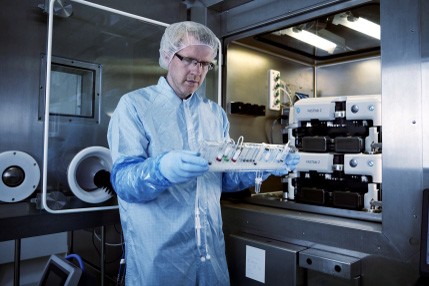GE Healthcare and Vanderbilt University Medical Center will collaborate on enabling safer and more precise treatment of cancer immunotherapies.
Under the during the five-year program, the organizations will analyze the immunotherapy treatment response of thousands of VUMC cancer patients by using anonymized demographic, genomic, tumor, cellular, proteomic and imaging data.
Cancer immunotherapy is a treatment that boosts the body’s natural defenses to fight the disease, according to the ¬Cancer.Net website. It uses substances made by the body or in a lab to improve immune system function in the hope of stopping the growth of cancer cells.

Vanderbilt University Medical Center
GE and Vanderbilt then will build artificial intelligence apps to help clinicians identify the best treatment option for each patient. At the same time, they will create new positron-emission tomography (PET) imaging tracers which when combined with apps will help doctors stratify patients for clinical trials.
Also See: Trial will test MRI-guided radiation for advanced pancreatic cancer
This should help reduce the current problem of inappropriate patients being recruited to participate in clinical trials, which increases expenses and slows the approval of new therapies, according to Jeff Balser, MD, president and CEO at Vanderbilt University Medical Center and dean of the Vanderbilt University School of Medicine.
“Immunotherapy offers tremendous promise but given the current unpredictability of some patients’ reactions to treatments, it also is associated with increased morbidity and cost,” Balser explains. “This partnership provides the opportunity to leverage strengths of both of our organizations to further personalize cancer care by creating new tools that allow clinicians to more accurately predict how patients will respond to a specific therapy.”
Both organizations also will work to improve productivity by automating processes and digitizing workflow. The first prototype is expected to be available by the end of this year with the PET imaging tracers available in a proof-of-concept stage by the end of 2020.

